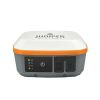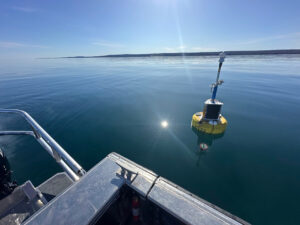Juniper Mesa 3 Rugged Tablet Computers
The Juniper Mesa 3 is a handheld field device that runs the Android 11 operating system while maintaining an ergonomic and lightweight design to minimize fatigue and optimize efficiency.
Features
- Waterproof, dustproof, shockproof
- Extreme temperature endurance
- Ergonomic design for minimal user fatigue
- Free ground shipping
- Expedited repair and warranty service
- Lifetime technical support
- More
Overview
The Juniper Mesa 3 offers powerful new functionality while retaining impressive features from the popular Mesa 2 Rugged Tablet. The Mesa 3 is ready to run even the most demanding field data collection application. Its rugged, ergonomic design is prepared to handle a long day on the job in some of the harshest environments out there.
Juniper Built Rugged
Meeting IP68 and MIL-STD-810G ratings, the Mesa 3 is waterproof, dustproof, and shockproof. Rest assured, rain, extreme temperatures, and dirt won’t stop a productive workday.
Powerful Processing Power
Expect lightning-fast speeds all day long with the Mesa 3's processor and large memory capacity. Running an Android 11 operating system, the Mesa 3 is made to handle large files and detailed maps.
All-Day Usability
From ergonomic enclosures and sunlight-readable displays to 15-hour battery life, the Mesa 3 is made for long days on the job.
Carefully Designed and Supported
The Juniper Mesa 3 is more than a rugged tablet. Designed and assembled in the United States, the Mesa family of devices promises longevity and data protection. Each device is proudly supported by live and personalized customer support if it becomes necessary.
- Main unit with orange corner bumpers
- Removable Lithium-Ion Battery
- AC Wall Charger with International Plug kit
- Adjustable Hand Strap
- Capacitive Fine Tip Stylus w/ Tether
- Quick Start Guide
In The News
Save our Bogs! Culture, Conservation and Climate Action in Ireland’s Peatlands
Characterized by long-term accumulation under waterlogged conditions, peatlands exist on every continent and account for 3-4% of the global land surface . Small but mighty, these often overlooked wetland environments are estimated to hold as much as one-third of the world's organic carbon in their soil—twice the amount found in the entirety of the Earth's forest biomass. While healthy peatlands can trap and store carbon, regulate water, and provide important habitats for rare species, human alteration has disturbed peatland carbon and nitrogen cycles on a global scale. Approximately 12% of the world’s peatlands have been drained and degraded through conversion for agriculture, forestry, infrastructure development, and other uses.
Read MoreSargassum Surge: How Seaweed is Transforming our Oceans and Coastal Ecosystems
Until recently, Sargassum –a free-floating seaweed–was distributed throughout the Sargasso Sea , the north Caribbean Sea, and the Gulf of Mexico. But in the space of a decade, this seaweed has, as one scientist remarks , “Gone from a nonfactor to the source of a terrible crisis.” Driven by climate change, anomalous North Atlantic Oscillation in 2009-2010 and a glut of anthropogenic pollutants, sargassum has proliferated. Seasonally recurrent mats as deep as 7m now bloom in the “Great Atlantic Sargassum Belt” (GASB), which covers areas of the Atlantic from West Africa to the Caribbean Sea and Gulf of Mexico. Every year, millions of tons wash up along the shores of more than 30 countries . Dr.
Read MoreGreat Lakes Research Center: Designing Targeted Monitoring Solutions
According to the National Oceanic and Atmospheric Administration ( NOAA ), the Great Lakes have more miles of coastline than the contiguous Atlantic and Pacific coasts combined and contain 20 percent of the world's freshwater, making it a critical region to protect and conserve. Continuous monitoring and data-informed resource management are key components of managing waters in the region. Hayden Henderson, a research engineer with the Great Lakes Research Center (GLRC), designs and deploys monitoring platforms throughout the Great Lakes. With a background in environmental engineering, Henderson enjoyed the challenge of creating systems and making them work to obtain difficult, remote measurements.
Read More




































